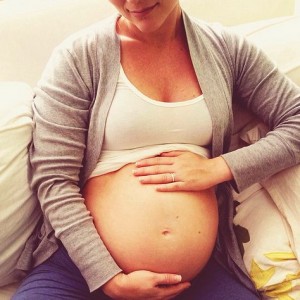Study cautions babies born at home may be at increased risk for health problems
Study cautions babies born at home may be at increased risk for health problems
Although home births account for fewer than 1 percent of births in the United States, the percentage of women choosing to deliver at home has increased notably since 2004, according to the most recent data(.pdf) from the National Center for Health Statistics.

Now new research from UC San Francisco shows that babies delivered at home may be at higher risk of complications after birth including low Apgar scores and seizures. In the study, researchers examined birth certificate data on nearly 2.3 million singleton U.S. births in 2008. Health Day reports that researchers found:
Babies born at home were more than twice as likely to have an Apgar score of under 7 as children born in a hospital or at a birthing center, and also had double the chances of having a seizure.
The Apgar score is a test used to measure a child’s skin color, pulse and overall vigor in the moments after birth.
The overall number of kids who had seizures was low — less than 1 percent at any location.
However, researchers say that some of these risks were reduced if a certified nurse midwife was present at the home birth.
Further down in the story, Mary Norton, MD, professor of obstetrics and gynecology at Stanford, comments on the findings and advises women considering a home birth to recognize that it involves certain risks. She says:
Even in a normal-health woman with a normal pregnancy, there will always be unanticipated things that can happen and unanticipated emergencies.
…
This data does indicate there is a higher level of risk to the baby when delivering at home. If someone is carefully monitored, is in close proximity to the hospital and willing to go to the hospital if needed, then the risks are lower.
By Lia Steakley
Stanford University Medical Center
Photo by David Roseborough
###
* Stanford University Medical Center integrates research, medical education and patient care at its three institutions – Stanford University School of Medicine, Stanford Hospital & Clinics and Lucile Packard Children’s Hospital.
** The above story is adapted from materials provided by Stanford University School of Medicine
________________________________________________________________




















